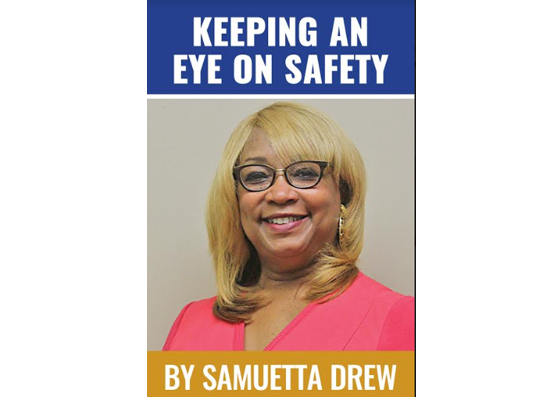By Samuetta Hill Drew
At 2 a.m. on Sunday time moved backward for one hour ending daylight saving time for 2023. This time shift requires our mind and body to adjust because our internal clock has been thrown off.
Adjusting to the time change differs among individuals. Some people adjust in a few days, while others require more time. Keep in mind time shift adjustments apply to children as well.
This one-hour time shift often leaves us feeling slightly groggy and sometimes irritable. In a country where many of its citizens suffer from various types of sleep disorders, a time shift can create some problems. Therefore, there are some safety measures you may consider if you have not already begun to do so.
Maintain your regular daily schedule. Be consistent with eating, social, bedtime and exercise routines during the time change transition. If your exercise routine involves outdoor evening activities, it is important you take safety precautions to stay in well-lit areas, wear reflective type clothing and wear/carry a flashlight.
Before going to bed, slow your body down. Raising your body’s core temperature can make it harder to sleep, so avoid workouts within a few hours of your bedtime.
Put away all your devices such as your phone, computer, or tablet. Turn off the television and pick up a non-suspense book. Note that high-intensity light stimulates your brain and hinders melatonin, a hormone that triggers sleepiness.
Create a sleep-inducing environment by keeping your bedroom cool and dark. Have a warm soothing drink such as herbal tea or milk. Avoid alcohol late at night and caffeinated beverages such as coffee and sodas at least three to four hours prior to your bedtime.
Staying consistent with the amount of sleep you get each night helps, too, which also includes the weekends. I know sleeping in on the weekends sounds like a great and wonderful idea, but experts say it can disrupt your sleep cycle.
It is recommended that you use the bed for sleeping. Experts say your mind will adjust to the habit of getting into bed for sleep. It’s much like the practice we use for infants and young children.
Being aware of the safety precautions to take during this transitional period will help you Keep an Eye on Safety by protecting everyone’s sleep cycle.




